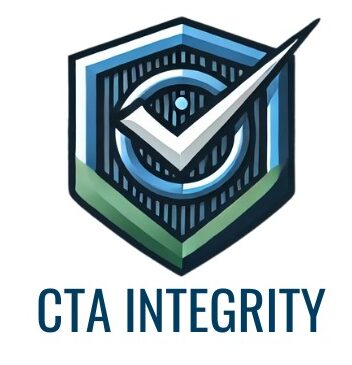The US Corporate Transparency Act (CTA) was introduced to combat illicit activities by enhancing the transparency of company ownership structures. This requires companies to disclose their beneficial owners to the Financial Crimes Enforcement Network (FinCEN), with the aim to prevent the misuse of corporations and limited liability companies for criminal activities such as money laundering, fraud, and the financing of terrorism. In September 2022, FinCEN finalized a rule mandating the reporting of beneficial ownership information (BOI) under the CTA, with reporting starting from January 1 of this year. Here are seven essential things to know about BOI reporting:
1. What is Beneficial Ownership Information?
Beneficial Ownership Information includes details about individuals who directly or indirectly own or control a company. This information is crucial for understanding who you are doing business with, enabling confident decision-making within risk tolerance levels. BOI helps establish trust with legitimate businesses and business owners and contributes to understanding risk exposure regarding higher-risk jurisdictions, sanctioned individuals, or politically exposed persons. BOI also guides the level of monitoring required to mitigate risk efficiently.
2. Why is Beneficial Ownership Information Important?
Having accurate beneficial ownership data makes it more challenging for wrongdoers to utilize opaque ownership structures for illicit activities. Shell companies, often used to disguise illegal operations, can be identified and monitored more easily with BOI. This information is vital for financial institutions as part of their due diligence processes and is generally a regulatory requirement. It’s also important for governments issuing export licenses, approving loans, and awarding grants or contracts, as well as for businesses engaging in risk management strategies. Without BOI, managing risk exposure, complying with laws, and mitigating issues related to sanctions, terrorist financing, fraud, and money laundering become difficult.
3. What Does Substantial Control Mean?
Substantial control over a company can manifest in several ways, with definitions varying by region. In the US, substantial control, a concept recently introduced under the CTA, involves individuals who:
- Hold senior officer positions (e.g., president, CFO, general counsel, CEO, COO).
- Have the authority to appoint or remove officers or directors.
- Are key decision-makers within or for the company.
- Exert influence over significant decisions.
4. Who Has to File Beneficial Ownership Information?
Two types of reporting companies must comply with BOI rules outlined by FinCEN:
- Domestic reporting companies: Corporations, limited liability companies, and other entities created via document filing with a US state office.
- Foreign reporting companies: Entities formed under foreign laws but registered to do business in the US through similar filings.
Some entities are exempt, including publicly traded companies meeting specific criteria, certain nonprofits, and large operating companies. Nonetheless, the reporting obligation is widespread, impacting millions of businesses domestically and internationally.
5. Under the Corporate Transparency Act, Who Can Access Beneficial Ownership Information?
Authorized entities such as federal, state, local, and tribal officials, along with some foreign officials, can access beneficial ownership information for national security, intelligence, and law enforcement purposes. Financial institutions can access this information under particular circumstances, with reporting companies’ consent. However, access is not universal; other organizations may also gain access for due diligence and risk management, but it’s not guaranteed.
6. When and How Do Entities Need to File Beneficial Ownership Information?
Companies must report their beneficial ownership information electronically through a secure FinCEN system. Reports include names, birthdates, addresses, and identification numbers (e.g., passport or driver’s license). Authorized individuals such as employees, owners, or third-party service providers can file reports. The BOI E-Filing website launched on January 1, 2024. Companies created or registered before January 1, 2024, have until January 1, 2025, to file their initial report. Newly created or registered companies in 2024 have 90 days after notice of creation or registration, while those created or registered from January 1, 2025, onward have 30 days.
7. What Are the Consequences of Not Filing or Mis-Filing Beneficial Ownership Information?
Non-compliance can lead to significant penalties. Willful violations may result in fines of up to $500 per day of ongoing non-compliance and criminal penalties, including up to two years of imprisonment and fines up to $10,000. Mistakes or omissions can be corrected within 90 days of the initial report deadline, but consistent disregard for BOI reporting obligations can attract civil and criminal penalties.
The new FinCEN reporting requirements represent a major shift for businesses in the US. Assess which entities need to report and gather the necessary information to ensure compliance. Contact our Tax Experts for support in reviewing the new BOI reporting requirements.
TAKE ACTION NOW!
For a comprehensive understanding and to ensure your business remains compliant, reach out to us today. Our team of experts is here to help you navigate the complexities of BOI reporting. Don’t wait until the last minute—schedule a consultation now and secure your compliance.
https://ctaintegrity.com/boi-quiz/





